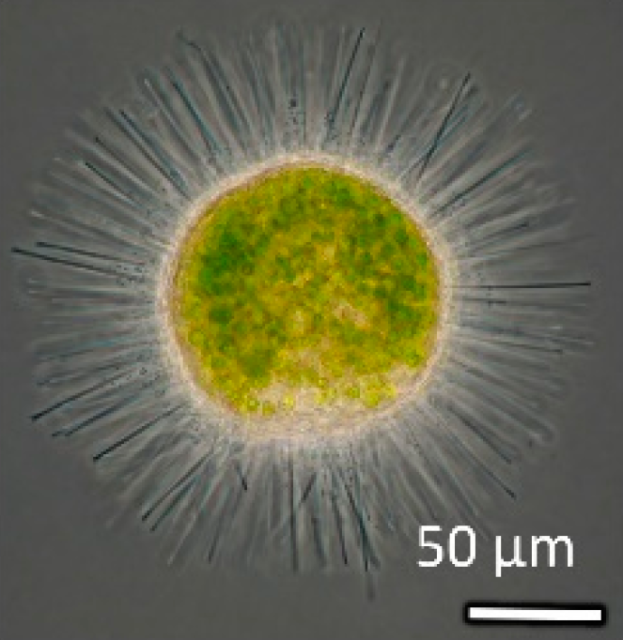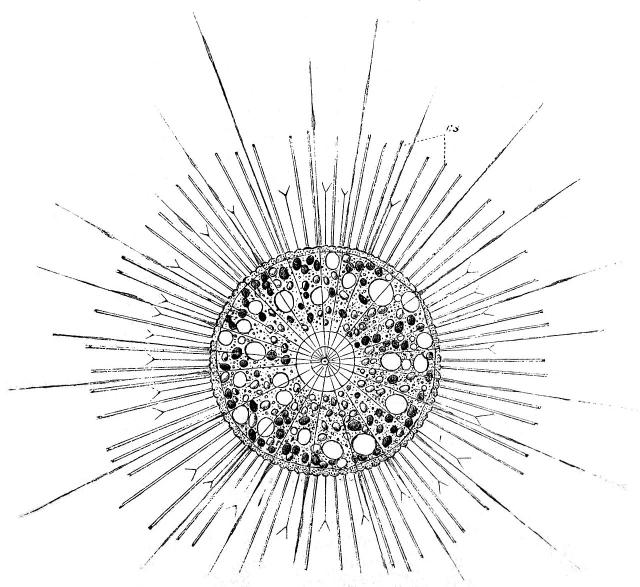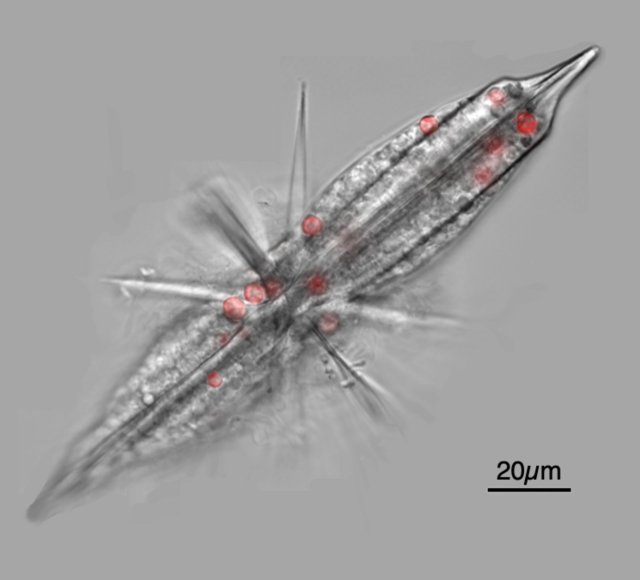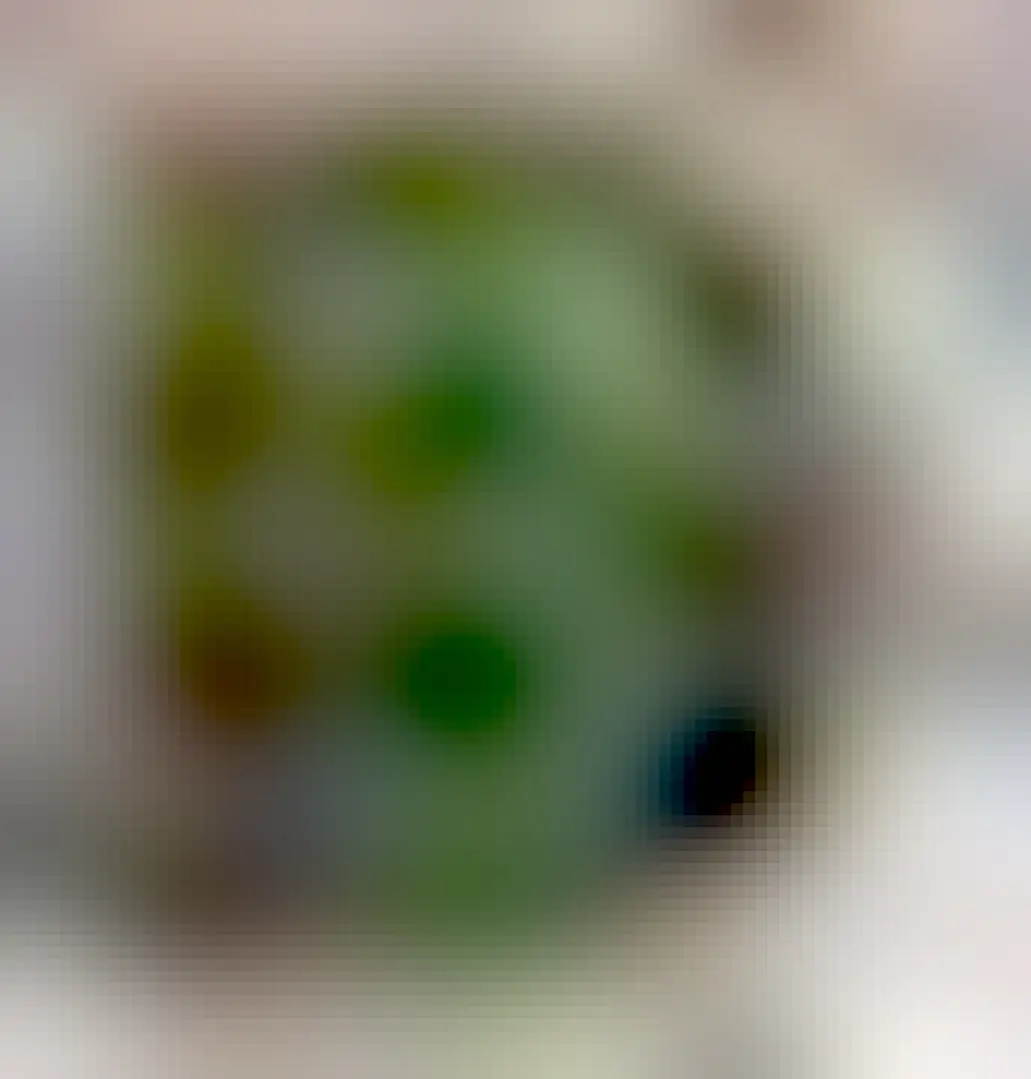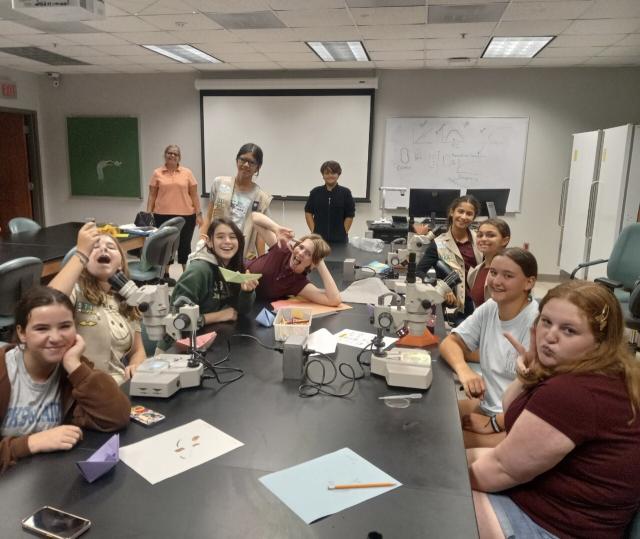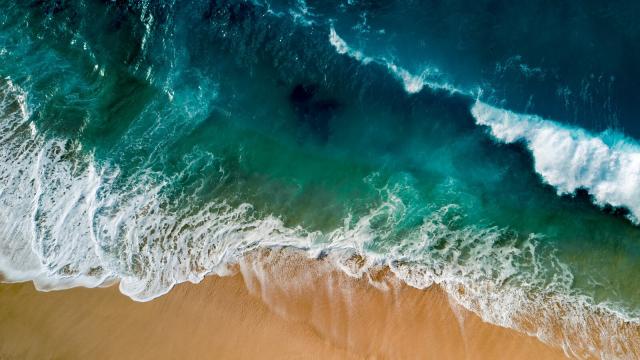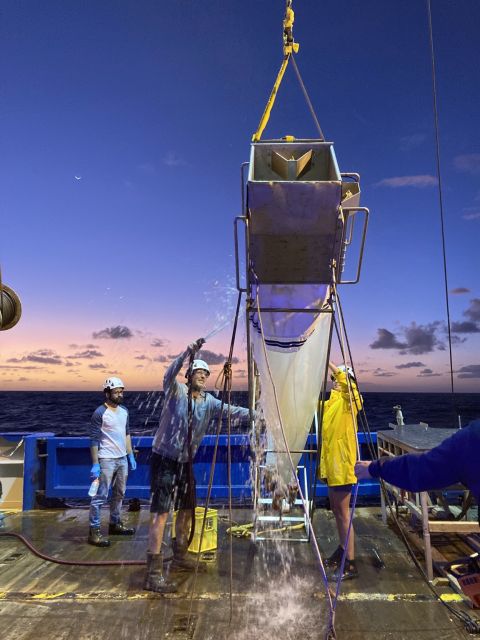Search
Items tagged with: Plankton
Heliozoans are a group of amoeboid protists found commonly in both fresh and saltwater. They were termed sun-animalcules due to their spherical shape and distinctive radiating microtubules, which support axiopods used to capture food and facilitate movement. Some will also capture symbiotic algal cells which provide energy through photosynthesis. Heliozoa is "polyphyletic", meaning it is an artificial grouping of multiple taxonomic lines.
#Science #Biology
With spring 🌱 upon us in the northern hemisphere, it is the time for the spring bloom in many lakes and oceans. To grow, #phytoplankton require #nutrients and #light, so start reproducing rapidly due to an abundance of nutrients mixed in the water column and increased light intensity 🌞. Zooplankton grazers have yet to increase, and warming conditions help to retain algae near the surface euphotic zone via stratification.
serc.carleton.edu/eet/phytopla…
#Science #climate
Weekend #Plankton #Factoid 🦠🦐
Research on how bacteria and archaea interact with other members of the plankton food-web is much more advanced in #ocean systems compared to freshwaters, but still very much unknown. They are food, but we also know of many cases of apparent symbiosis between #bacteria and organisms, with bacteria providing bioluminescence, energy via photosynthesis, or B vitamins, but how common is this? Read about the mission here. #science #ClimateChange
fondationtaraocean.org/en/scie…
The plankton paradox: Unprecedented cooperationbetween bacteria in the Ocean
A team of CNRS researchers, led by Dr. Samuel Chaffron, developed a model based on data fromthe Tara Oceans expedition (2009-2013) to explain the plankton paradox: Ocean microorganismsof astonishing diversity should be competing, but instead collabor…deborah (Fondation Tara Océan)
#Plankton mark #seasons in the #sea, just like leaves and flowers on land.
theconversation.com/plankton-m…
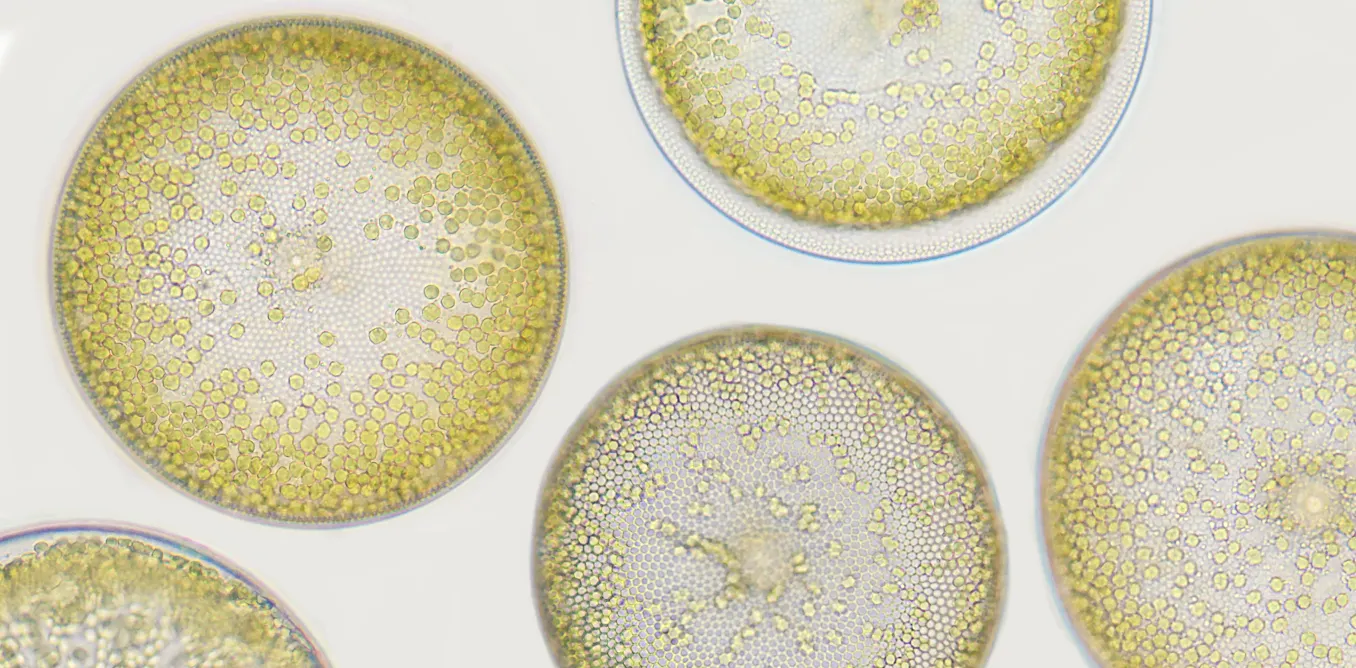
Plankton mark seasons in the sea, just like leaves and flowers on land
Plankton bloom and wither with the seasons much as plants do on land.The Conversation
Bythotrephes longimanus (cederströemi), is called the Spiny Water Flea for obvious reasons. It is an invasive species introduced to #GreatLakes in the 1980s from Europe. They are a large (1.5 cm) and highly predaceous #cladoceran #zooplankton that eat 75% of their weight/d. They peak late in the year to huge densities at times. While they compete with planktivorous fishes, they are also a desired prey for fishes like Alewife and Yellow Perch.
nas.er.usgs.gov/queries/GreatL…
NOAA National Center for Research on Aquatic Invasive Species (NCRAIS)
NOAA National Center for Research on Aquatic Invasive Species (NCRAIS): goal is to foster, coordinate, and support development of aquatic invasive species research throughout and across NOAA.NOAA Great Lakes Environmental Research Laboratory
#Copepod #zooplankton are the most numerous metazoans on the planet, and some have evolved into fantastical forms. Take Calocalanus pavo, the beautiful "peacock copepod", which has amazingly plumed antenna and caudal rami. It is small, ~1mm long, and uses the plumes to slow its sinking for feeding in the upper #ocean. It is famous for being very prominent in Ernst Haeckel's Kunstformen der Natur (1904) plate 54 #watercolour paintings of copepoda.
#science #art
In marine systems where high nutrients lead to #hypoxia (low oxygen), it is commonly thought animals must avoid these zones - wrongly. Many types of #zooplankton seek refuge from predation in low oxygen layers in lakes and oceans. This is quite relevant to the #carbon pump off Peru because mesopelagic zooplankton, including Euphausiid #krill can graze on algae sinking in these zones, and produce rapidly sinking fecal pellets. #Climate
📖
nature.com/articles/s43247-023…
Hypoxia-tolerant zooplankton may reduce biological carbon pump efficiency in the Humboldt current system off Peru - Communications Earth & Environment
Grazing of sinking particles by hypoxia-tolerant zooplankton likely reduces biological carbon pump efficiency in the Oxygen Minimum Zone off Peru, suggest analysis of drifting sediment trap samples and in situ imaging observations.Nature
#Viruses of #Plankton: On the Edge of the Viral Frontier
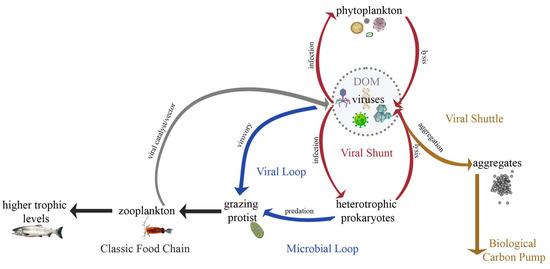
Viruses of Plankton: On the Edge of the Viral Frontier
The field of aquatic viral ecology has continued to evolve rapidly over the last three decades [...]MDPI
Rising temperatures could transform plankton and other tiny aquatic organisms into a huge source of #carbon #emissions, a little-known—and potentially catastrophic—climate tipping point that could accelerate #globalwarming.
A study, published Thursday in Functional Ecology, found that rising temperatures cause a sudden shift in these microbes’ eating habits, flipping them from carbon absorbers to carbon emitters.
grist.org/science/plankton-cli…
Another climate tipping point to worry about: Plankton
Rising temperatures could turn one of the world's most common organisms into a major source of carbon emissions.Kate Yoder (Grist)
Coccolithophores (phylum Haptista) are a type of #phytoplankton covered in white calcium carbonate coccolith plates. Blooms in the surface seas can be seen in satellite images because these shells. They are the primary component in #chalk deposits such as the white cliffs of Dover (the "calcite belt" in the temperate north) and as such are very important for the biological carbon pump.
#climate
Emiliania huxleyi (below) is a common species.
joidesresolution.org/the-magic…
The Magical World of Coccolithophores
What are these beautiful algae? Where are they found and why are they important? Teachers down load the word document at the end of the article with questions. These photographs show 4 coccolitho…JOIDES Resolution
#Zooplankton have amazing abilities to sense their environment. The setae on long extended antennae have mechanoreceptors & chemosensors (aesthetascs). #Copepods can smell and track a pheromone plume of many body lengths, or detect particular prey items. Very sophisticated behavior for this ecologically important uncharismatic microfauna.
This is an excellent review article on the chemical ecology of copepods. Highly recommended read. 📖
academic.oup.com/plankt/articl…
The chemical ecology of copepods
An increasing number of studies show the importance of chemical interactions in the aquatic environment. Our understanding of the role of chemical cues and signHeuschele, Jan (Oxford University Press)
